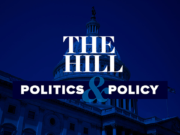This piece originally appeared in the Washington Examiner on June 23, 2020.
It’s true in life and politics: You don’t know what you don’t know. After Facebook’s decision to allow users to block ads about social and political issues, maybe you never will.
Digital ads help new voices reach large audiences. Far cheaper than TV ads, they are one of the best ways for first-time candidates to get their message out and build that all-important list of supporters.
Consider star House freshman Rep. Alexandria Ocasio-Cortez. She scored the biggest upset of the 2018 primaries after spending half of her campaign’s funds on Facebook ads. The Intercept’s Ryan Grim noted last November that Ocasio-Cortez “was able to reach new voters by using Facebook to build and complement her field operations.”
If many of the site’s users choose to block political ads, it will cut off a lifeline for newcomers hoping to follow in Ocasio-Cortez’s footsteps. By weakening its advertising tools to appease political pressure, Facebook is pulling up the ladder on candidates just starting their climb.
The new feature also reinforces the power of party leaders and major media outlets. With less ability to speak directly to the people, a close relationship with party organizations will become even more valuable. Other candidates may find they need ridiculous stunts or outlandish statements to grab a piece of the news cycle.
Politically engaged people may be the most likely to utilize Facebook’s new ad-blocking feature. They already have sources of political information they trust and enjoy. Unfortunately, these are often the very people new candidates need to reach. Without Facebook ads, they may not be able to.
Political content that goes viral tends to hype national controversies and partisan narratives. While local candidates are being boxed out of your news feed, your uncle is sharing President Trump’s latest statement while your former roommate posts a meme from Occupy Democrats. Even if you consume a ton of political news, the media often have a blind spot for local races and new candidates.
Once a campaign gains momentum, people will hear about it through means other than advertising. Posts on social media will be shared for free by supporters, and the local media may begin covering the campaign. To build that initial momentum, however, candidates need to spend money.
It’s not just candidates who suffer from Facebook’s new feature. In addition to campaign ads, the platform will also allow users to opt out of ads about social issues and legislation.
The same problems present themselves here. Grassroots social movements often rely on digital ads to solicit support and raise awareness for their causes. As people spend more and more time in front of screens, digital advertising becomes an essential tool for activism.
Facebook has the right to decide whether and how to allow these ads on its platform. Yet its decision to let users block political ads while forcing them to view ads for credit cards, beauty products, and freemium mobile games, is harmful to political discourse. Like Twitter’s outright ban on political ads, it gives an advantage to those with enough money to flood the TV airwaves or enough fame to get their message out without paying for it.
Political ads may be annoying, but they raise awareness and interest in elections. They are most useful to the candidates with the fewest alternatives for getting their message out. In a world where the wealthy and powerful seem to have all the advantages, we shouldn’t scorn a tool that helps others compete.














